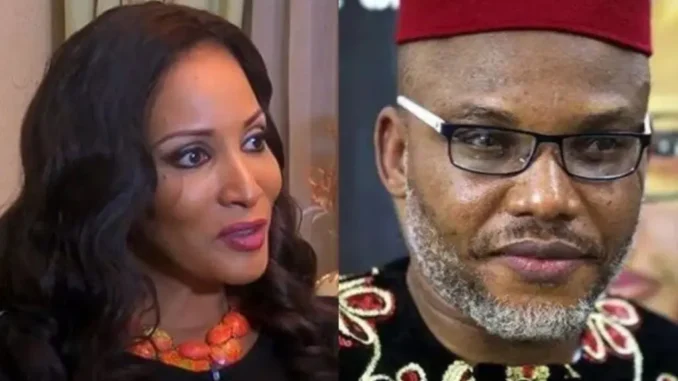
By Divine Sam
The recent appointment of Bianca Ojukwu as Minister of State for Foreign Affairs by President Bola Tinubu has ignited discussions about its potential implications for national unity, particularly in relation to the ongoing detention of Nnamdi Kanu, the leader of the Indigenous People of Biafra (IPOB). Many stakeholders view this move as a step toward healing the rift between the Southeast and the broader Nigerian government.
Katchi Ononuju, Director General of the Heritage Centre, emphasizes that while the appointment reflects an acknowledgment of the need for national healing, tangible actions must follow to validate this intent. He argues that inclusion in governance cannot be achieved through appointments alone; it requires a commitment to addressing the concerns of the people.
On the matter of Kanu’s release, Ononuju asserts that the ultimate decision rests with the Nigerian government, irrespective of Bianca’s influence. He calls for a negotiated resolution similar to those extended to other figures involved in similar agitations.
Aloy Ejimakor, Kanu’s legal counsel, suggests that Bianca is in a prime position to advise the President on the international repercussions of Kanu’s continued detention, citing her previous calls for his release.
Activist lawyer Madubuachi Idam supports the view that Bianca’s appointment could enhance the likelihood of Kanu’s release and improve the Tinubu administration’s standing in the Southeast. He stresses the need for effective governance and calls for the replacement of underperforming ministers to address the pressing hardships facing the nation.
Overall, while Bianca’s appointment is seen as a positive step towards reconciliation, stakeholders emphasize that it must be complemented by meaningful actions to resolve ongoing tensions and facilitate healing in Nigeria.